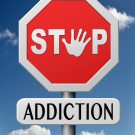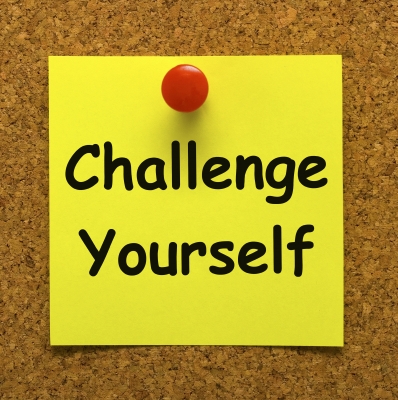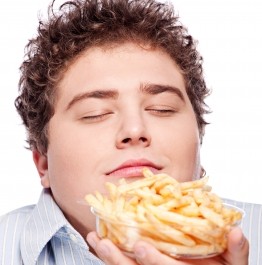Releasing Addictions with the Body Code
I had a client that was addicted to pot, drank too much alcohol and played too much chess.
He would smoke 10-15 bowls (Pipes) per day, drink 2-4 alcoholic drinks per day, and had to play chess every day for 1-1.5 hrs.
He had tried to quit smoking pot before, and had successfully before, but it made him angry and resentful that he had to give up something he felt he needed. So to distract himself from his addiction to pot, he played chess 3-5 hrs a day! After a couple of years of this, he went back to smoking again.
So he asked me to release his addiction to pot, and we worked on all the triggers that made him want to smoke. Most of those triggers were around his difficulties getting along with people.
By the next session,
Read MoreGoodbye Sabotage, Hello Self-compassion
Have you ever wondered why we self-sabotage?
We often call it addictions. And yes, we develop addictions by repeating the same action over and over. But why?
Addictions, whether they are to food, alcohol or an obsessive-compulsive habit such as hand washing, are how we self-soothe to deal with our unpleasant, anxiety-prone reality.
I have a client who I’ve worked with to release a lot of self-sabotaging behaviors. She wasn’t exercising enough, drinking enough water, or eating well. We released the negative beliefs, emotions, addictive thought patterns and feelings of sabotage, and now she has developed healthy food, water and exercise habits.
But now that she is on a healthy streak, losing weight and looking great, she had a fear that she could self-sabotage again. So we asked her subconscious, “what triggers her to self-sabotage?” The answers were enlightening, and likely relevant to most or all of us!
Her subconscious revealed that she could be triggered to self-sabotage when:
Read More5 New Year’s Resolutions to Consider for Personal Growth
People often use New Year’s Resolutions as an opportunity to try to break a bad habit. Some of the most common ones are to lose weight, exercise more, or stop smoking. But have you considered setting goals that will help you personally and interpersonally? Here are a few to consider:
Read More5 Essential Tips to Curb Emotional Eating
You know that you aren’t hungry… after all, you’ve eaten your regular meals, but you are craving your favorite snack again. Maybe it’s in the middle of the afternoon, or more commonly late at night.
Why do we have these cravings, and what can we do to stop our emotional eating?
Have you noticed that we are more prone to giving into these cravings when you are stressed or late at night? Why? Because that is when our willpower is weakest. Willpower is limited, and if we are using it all day to effectively deal with existing stresses, then we will have less of it to resist those cravings. But there are tricks we can do to maximize our willpower and minimize our emotional eating habits.
What are the tricks to curb our emotional eating habits?
Read More9 Hidden Reasons Why We Can’t Focus
Are you struggling to focus?
Are you having trouble getting things done?
Is it getting in the way of your career or ability to earn money?
Are you worried that you might lose clients, or get fired from your job?
I used to have the hardest time concentrating on my work! I would do everything I could to tune out external distractions, I’d get exercise and enough sleep, and still my work was slow moving, and I’d need frequent breaks. Because I wasn’t very productive during my work days, I’d try to work longer hours to make up for it. I was caught in an endless cycle of workaholism, and it led to burnout and fatigue and depression.
These days, my mind is usually clear, and on the few days when I’m having trouble focusing, I address the underlying problems and that is enough to get my brain working at its best.
How have I gotten this far?
I found 9 underlying reasons that were getting in the way:
Read MoreFive Reasons Why Sleep is Imperative
One of the best things we can do for ourselves is get enough sleep. Yet, in the U.S., 50% of adults don’t get enough sleep, and 70% of teenagers are sleep deprived!
In America, we value productivity and play so highly, that we tend to dismiss the value of rejuvenation. Some of us think sleep is a waste of time. We might have a youthful optimism about sleep. We often stay up later than we should, and fool ourselves into believing we will be fine, yet the consequences of sleep deprivation can be dire!
Most of us are aware of the more immediate symptoms of sleep deprivation. We don’t react as quickly, think as well, it can be harder to concentrate, it can make us moody and irritable. And the more tired we are, the more susceptible we are to falling asleep. If we are operating heavy machinery, like a car, that could have dire consequences.
Interestingly, research shows that after 3 days of sleep deprivation, we seem to lose the awareness that we are sleep deprived. Unbeknownst to us, our judgment becomes impaired. We seem to settle into a new normal and deceive ourselves into thinking we are fine, despite the fact that we are still experiencing the same symptoms!
are fine, despite the fact that we are still experiencing the same symptoms!
If we survive the short-term effects of sleep deprivation, over the long term, we are increasing our accumulative stress burden and our risk of chronic diseases, and destroying our brain.
These are my five most compelling reasons for getting a good night’s sleep.
Read More








